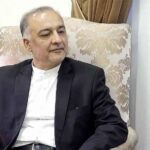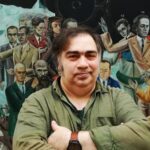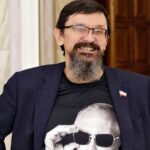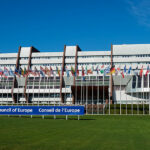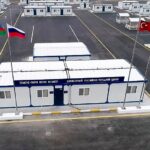Azerbaijan’s president expressed concern on Tuesday at the “unequal and unfair” distribution of vaccines between developing and developed countries.
“We all are deeply concerned by the unequal and unfair distribution of vaccines among developing and developed countries,” said President Ilham Aliyev at a twice-weekly UN press webinar. “Some countries have several times more vaccines compared to their actual needs.”
Aliyev said in a video message that the upcoming World Health Day on Wednesday is dedicated to building a fairer and healthier world during the global COVID-19 pandemic adding: “The question of equal and fair distribution of vaccines is of paramount importance for this course.”
He said he expected that a resolution his country proposed at the UN Human Rights Council, where it passed with consensus in March, on universal access to vaccines for all countries would become a cooperative model in response to the pandemic.
“Only together we will overcome the pandemic and will return to normal life,” he said.
Barbados Prime Minister Mia Amor Mottley, Costa Rican President Carlos Andres Alvarado Quesada, Namibian President Hage Geingob, and WHO Director-General Tedros Ghebreyesus also addressed the webinar.
Geingob, whose country was once colonized by South Africa, spoke about an emerging “vaccine apartheid.”
Tedros said: “COVID-19 has exacerbated inequalities both between and within countries.
“The poorest and most marginalized have been hit hardest — both in terms of lives and livelihoods lost.”
The WHO chief said that at the start of 2021, he had called for every country to start vaccinating health workers and older people in the first 100 days of 2021.
This week will mark the hundredth day, and 190 countries and economies have now started vaccination.
“It’s a travesty that in some countries, health workers,” and at-risk groups, “remain completely unvaccinated,” said Tedros.
Peter Kenny
Anadolu Agency



